The rise of gourmet corporate gifting: How businesses are ditching logo mugs for memorable experiences

Corporate gifting has undergone a remarkable transformation. Gone are the days when companies defaulted to branded pens, logo-emblazoned mugs, or generic gift cards that inevitably gathered dust in office drawers. Today’s forward-thinking businesses recognise that meaningful connections require thoughtful gestures – and nothing creates lasting impressions quite like exceptional food experiences.
This shift represents more than just a trend; it’s a fundamental reimagining of how companies express appreciation and build relationships. Rather than viewing corporate gifts as mere marketing tools, businesses are embracing them as opportunities to create genuine moments of delight. The result? A flourishing market for bespoke, food-led corporate gifting that prioritises quality, personalisation, and memorable experiences over mass-produced convenience.
The death of generic corporate gifts
The corporate gifting landscape has historically been dominated by a “spray and pray” approach – order hundreds of identical items bearing the company logo, distribute widely, and hope for the best. This one-size-fits-all mentality reflected a simpler time when businesses operated with less nuance about client relationships and employee appreciation.
However, research consistently shows that generic corporate gifts often miss the mark entirely. A 2023 study by Corporate Gift Solutions found that 68% of recipients couldn’t remember the last branded gift they received from a business partner, whilst 72% admitted they’d never used corporate-branded items more than once.
The problem lies in the impersonal nature of these gifts. When recipients open a package to find yet another branded notebook or stress ball, the message is clear: they are one of many, and the gift required minimal thought or effort. Such items fail to create emotional connections or demonstrate genuine appreciation for the recipient’s unique value.
Modern businesses understand that relationships drive success, and relationships require authenticity. Generic gifts signal the opposite – they suggest that the recipient isn’t worth individual consideration. In an era where personalisation has become standard across industries, corporate gifting couldn’t remain immune to this evolution.
Why food-led gifting resonates in business
Food occupies a unique position in human culture and psychology. Unlike material objects that serve practical purposes, food engages multiple senses and creates shared experiences. When businesses choose food-based gifts, they tap into fundamental human connections around sustenance, pleasure, and communal enjoyment.
The sensory nature of gourmet food makes it inherently memorable. Recipients don’t simply acknowledge a gift and file it away – they actively engage with it. The process of unwrapping artisanal chocolates, sampling premium olive oils, or sharing specialty cheeses creates moments that embed themselves in memory far more effectively than passive items like branded stationery.
Moreover, food-based gifts often extend beyond the primary recipient. A carefully curated hamper becomes a talking point at dinner parties, premium teas get shared with colleagues, and specialty condiments enhance family meals for months. This ripple effect amplifies the gift’s impact and keeps the giver’s thoughtfulness top of mind long after the initial presentation.
The timing element also works in food’s favour. Unlike durable goods that may sit unused, consumable gifts have natural endpoints that encourage engagement. Recipients feel compelled to enjoy them whilst they’re fresh, creating immediate positive associations with the gift-giver.
Food-led gifts also demonstrate a sophisticated understanding of quality and craftsmanship. Selecting artisanal products or rare delicacies signals that the giver values excellence and has invested time in making thoughtful choices. This message resonates particularly strongly in business contexts, where attention to detail and quality consciousness are highly valued traits.
The personalisation revolution
The shift toward personalised corporate gifting reflects broader changes in consumer expectations. People have grown accustomed to tailored experiences across digital platforms, from streaming services that curate content to retailers that suggest products based on browsing history. This personalisation standard now extends to professional relationships and gift-giving.
Personalised gifting requires companies to move beyond surface-level demographics toward genuine understanding of recipients’ preferences, dietary requirements, and lifestyle choices. This process itself strengthens business relationships, as it demonstrates active listening and genuine interest in clients or employees as individuals rather than transactional entities.
The data collection required for effective personalisation also creates opportunities for deeper engagement. Companies might conduct preference surveys, track past gift responses, or incorporate personal details shared during business conversations. This information becomes valuable relationship intelligence that extends well beyond gift selection.
Technology has made sophisticated personalisation more accessible. Advanced customer relationship management systems can store detailed preference profiles, whilst analytics help identify patterns and predict successful gift choices. Some companies now employ algorithms to match recipients with optimal gift combinations based on past successes and stated preferences.
The psychological impact of receiving a clearly personalised gift cannot be overstated. When recipients open packages containing items that obviously reflect their specific tastes – perhaps artisanal coffee for a known coffee enthusiast or premium teas for someone who mentioned their afternoon tea ritual – they experience validation and appreciation that generic gifts simply cannot provide.
Bespoke hampers: The gold standard of corporate gifting
Hampers represent the pinnacle of food-led corporate gifting because they combine multiple elements that contribute to memorable experiences. Unlike single-item gifts, hampers create journey-like experiences as recipients discover each carefully selected component.
Regency Hampers have perfected the art of bespoke hamper creation, working closely with businesses to understand their specific gifting objectives and recipient profiles. For instance, when a technology consultancy wanted to thank clients who had endured a particularly challenging project timeline, Regency Hampers corporate offering provides access to collections that acknowledges the stress whilst celebrating the successful outcome. Each hamper includes premium relaxation-focused items – artisanal bath products, herbal teas, and comfort foods – alongside celebration elements like premium champagne and luxury chocolates.
The bespoke approach allows for remarkable specificity. Cultural considerations ensure hampers remain appropriate across diverse client bases, whilst dietary restrictions and preferences receive careful attention. Seasonal timing can align with specific celebrations or business milestones, whilst presentation elements can subtly incorporate company colours or themes without overwhelming the recipient with branding.
Quality control becomes crucial in bespoke hamper creation. Every component requires careful vetting to ensure it meets the overall standard and contributes meaningfully to the recipient’s experience. This curation process distinguishes professional hamper services from simple product bundling – each element must earn its place through quality, relevance, and contribution to the overall narrative.
The business case for thoughtful gifting
The financial argument for investing in higher-quality, personalised corporate gifts becomes compelling when measured against relationship value rather than simple cost per unit. Whilst generic gifts might cost £5-15 per recipient, their minimal impact means they contribute little to business objectives beyond basic acknowledgement.
Thoughtful, food-led gifts typically cost more per recipient but deliver measurably better outcomes. Client retention rates improve when businesses demonstrate genuine appreciation through quality gifts. Employee satisfaction and loyalty increase when companies invest in meaningful recognition. New business opportunities often emerge from the goodwill generated by exceptional gifting experiences.
The return on investment calculation must consider the lifetime value of strengthened relationships. A £50 bespoke hamper that contributes to retaining a £100,000 annual client represents extraordinary value. Similarly, employee gifts that improve retention save recruitment and training costs that often exceed several thousand pounds per position.
Measuring impact requires moving beyond simple metrics like delivery confirmation toward meaningful engagement indicators. Companies increasingly track factors like thank-you response rates, social media sharing, referral generation, and long-term relationship quality improvements.
The social media effect
Food-based gifts possess inherent shareability that extends their impact well beyond the immediate recipient. Social media platforms are flooded with images of beautifully presented hampers, artisanal products, and luxury food experiences. This organic sharing amplifies the gift-giver’s thoughtfulness whilst creating positive brand associations.
The visual appeal of premium food gifts makes them natural social media content. Recipients often photograph hamper unveiling processes, individual components, or consumption moments. Each shared image reinforces the gift-giver’s reputation for quality and thoughtfulness whilst reaching extended networks that might include potential clients or employees.
This sharing behaviour also provides valuable feedback for gift-giving companies. Social media engagement patterns reveal which gift types generate the most positive responses, helping refine future selection strategies. Comments and reactions provide insights into recipient satisfaction levels and areas for improvement.
Looking forward: The future of corporate gifting
The evolution toward thoughtful, food-led corporate gifting shows no signs of slowing. If anything, post-pandemic emphasis on authentic connections and meaningful experiences has accelerated this trend. Companies recognise that in an increasingly digital business environment, tangible expressions of appreciation carry greater weight.
Sustainability considerations are also driving change, with businesses seeking gifts that align with environmental values. Food-based gifts often score well on sustainability metrics, particularly when sourced from local artisans or producers with strong environmental credentials.
Technology will continue enabling greater personalisation sophistication, whilst supply chain improvements make premium products more accessible. The challenge for businesses lies not in accessing better gifts but in developing the systems and mindset necessary to deploy them strategically.
The future belongs to companies that view corporate gifting as relationship investment rather than transactional obligation. Those willing to move beyond generic solutions toward thoughtful, personalised experiences will find themselves building stronger, more enduring business relationships that translate directly into commercial success.
Corporate gifting has evolved from afterthought to strategic advantage. Companies that embrace this shift – particularly through food-led, personalised approaches – position themselves not just as business partners but as organisations that genuinely value human connections. In a world where authenticity increasingly drives loyalty, thoughtful gifting represents one of the most tangible ways businesses can demonstrate their commitment to meaningful relationships.
The editorial unit






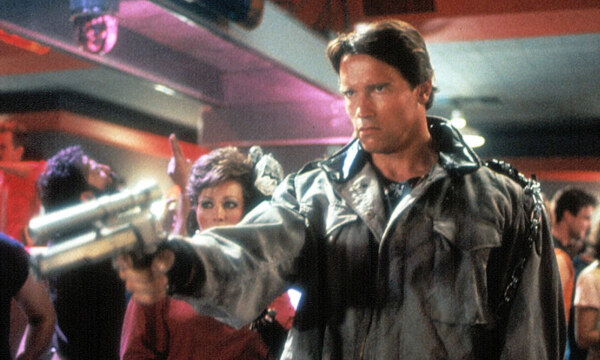



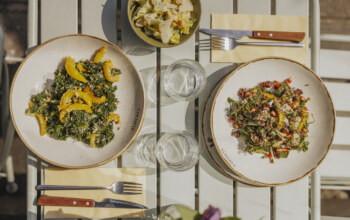





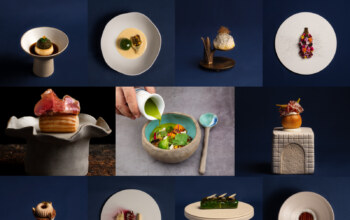
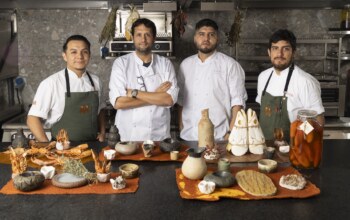

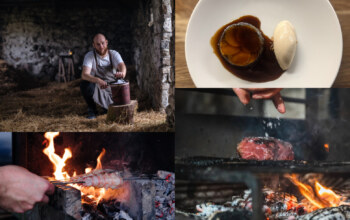





Facebook
Twitter
Instagram
YouTube
RSS